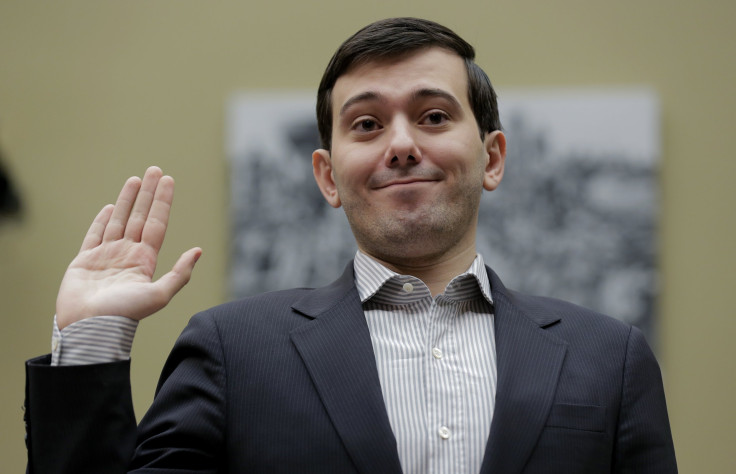Martin Shkreli Update: Wu-Tang Clan Album Artist Jason Koza Sues Ex-Pharmaceuticals CEO

A local New York artist began the process to sue former CEO of Turing pharmaceutical company, Martin Shkreli, over unfair use of art on a Wu-Tang Clan album purchased by Shkreli, Reuters reported Tuesday. Shkreli rose to infamy in 2015 after he raised the cost of a life-saving drug for cancer and HIV patients by 5,000 percent.
Shkreli had purchased the only known copy of the rap group Wu-Tang Clan's album "Once Upon a Time in Shaolin" for $2 million in December 2015, making it one of the most exclusive and expensive records of all time. The 32 year-old infamously said he planned on never listening to it and wanted only to "keep it from the people."
Jason Koza, 34, had designed art of the members of Wu-Tang Clan that ended up being featured on the album's cover. Koza said he had never been paid or contracted for the album and expected his work only to be featured on a website, WuDisciples.blogspot.com.
"Mr. Koza was happy when his work appeared on the website," the complaint read, adding, "Mr. Koza never granted a license for his works to be copied or displayed anywhere (else)." Under copyright law, Shkreli is responsible for the infringement whether he was aware of the copyright or not.
Martin Shkreli is being sued over his $2 million Wu-Tang Clan album: https://t.co/bkRg9DPWf7 pic.twitter.com/IF9bJQbLbg
— Reuters Top News (@Reuters) February 9, 2016
Shkreli is no stranger to legal battles. While his decision to raise the price of the drug Daraprim drew heavy criticism and landed him in front of a Committee on Oversight and Government Reform for price gouging, he was not indicted on charges related to the Daraprim price changes. He was, however, indicted on securities fraud in December 2015 after federal authorities accused him of lying to investors and transferring assets illegally between companies. He was eventually released on a $5 million bail.
“Shkreli essentially ran his company like a Ponzi scheme where he used each subsequent company to pay off defrauded investors from the prior company,” Brooklyn U.S. Attorney Robert Capers said at a press conference, Bloomberg reported.
© Copyright IBTimes 2024. All rights reserved.





















